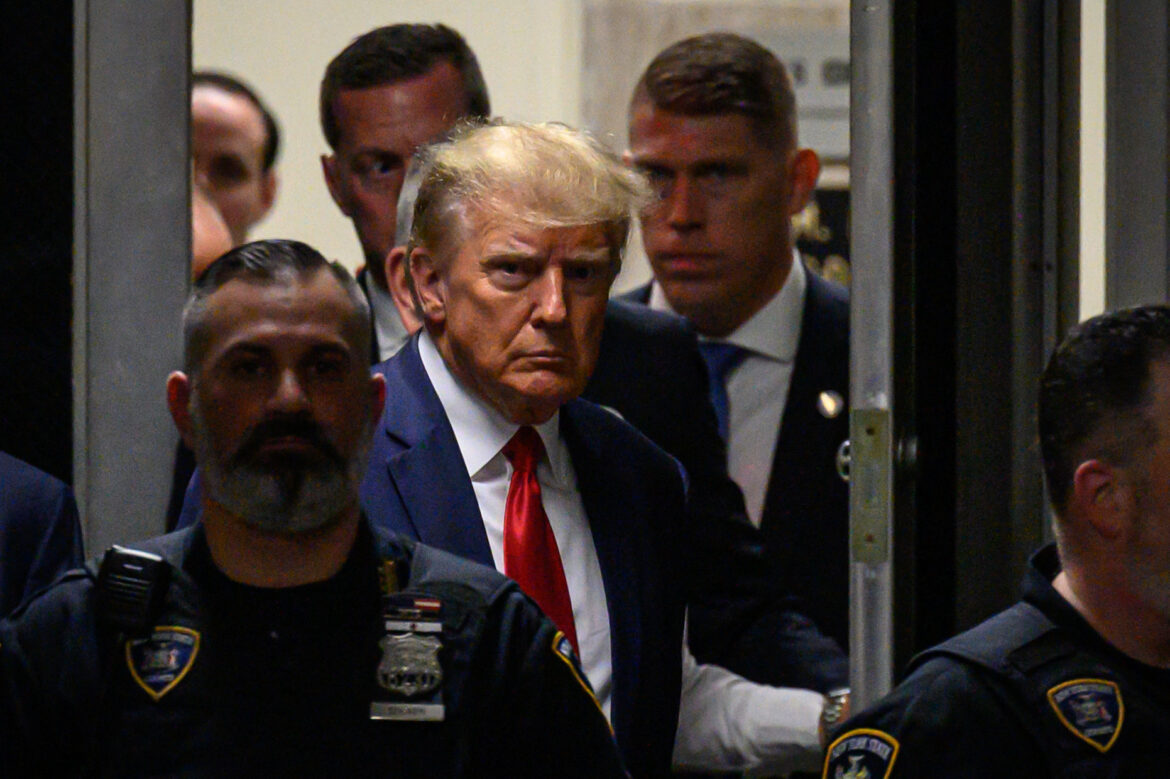This week, former President Donald Trump became the first former US president to face criminal charges. Mr. Trump faces over 30 criminal counts for document fraud relating to a payment made during the 2016 election to porn star Stormy Daniels. Daniels claimed to have had a brief sexual relationship with Mr. Trump in 2006, and while Mr. Trump denies the affair, his attempts at completely erasing the rumours have found him in a precarious situation.
In 2016, Stormy Daniels attempted to sell her account of the affair to the media. In response, Michael Cohen, Donald Trump’s lawyer, paid her $130,000 USD to keep quiet. Surprisingly, the hush money payment was completely legal. Trump’s charges relate to how Mr. Cohen’s payment to Ms. Daniels was recorded in Trump’s accounts. Instead of documenting the payment truthfully, Mr. Trump declared the payment was for legal fees.
Since the grand jury released his status as a potential criminal, Trump has milked the moment, using the indictment as an opportunity to increase his wealth and media presence. It began with several fundraising emails, resulting in $4 million USD raised for his campaign a mere 24 hours following his indictment. Of course, this was a ‘win’ he shared loudly. Additionally, Trump released a schedule of his indictment week as if it was a campaign tour: after his arrival on Monday in New York from Florida, he surrendered on Tuesday for mug shots, fingerprinting, and arraignment, and flew back to Florida to make a prime-time evening statement at Mar-a-Lago. Beyond that, Trump has used his notable social media presence to further propel himself into the spotlight. He trashed the prosecutor for his case, calling him a “degenerate psychopath,” and also claims “the Judge ‘assigned’ to my Witch Hunt Case, a ‘Case’ that has NEVER BEEN CHARGED BEFORE, HATES ME.”
Of course, this is a strategic tactic, well practiced by Mr. Trump. Throughout his campaign and following presidency, he consistently sought attention–under the assumption that “there’s no bad press unless you’re a pedophile.” Currently, he sees his indictment as an opportunistic moment, “combining exaggerated hyperbole with a claim to ultimate patriotism and religious zeal.” Shifting the attention from his criminal act towards the unjustness of his charge discredits the issue, at least in the eyes of his supporters. Many of them attended his campaign rally in Texas at the end of March, where he stated “[the district attorney’s inquiry] is really prosecutorial misconduct. The innocence of people makes no difference to these radical left maniacs.”
Mr. Trump’s witch hunt against the prosecution is further supported by members of the Republican Party. Several senior members called the indictment outrageous and have asked for a thorough congressional investigation into the matter. Kevin McCarthy, Speaker of the House, said that the prosecution had “irreparably damaged” the nation, citing the purpose of the indictment as a means to interfere with the 2024 Presidential election. Even Ron DeSantis, Trump’s toughest political opponent within the party, called the indictment “un-American,” going on to mention that “the weaponization of the legal system to advance a political agenda turns the rule of law on its head.”
There exists a similar theme in all these complaints from Republican Party members: the indictment is a politically charged move. Within that logic exists something inherently problematic–that crimes committed by powerful individuals should not be persecuted. While the indictment is occurring during a particularly charged political moment in the U.S. given the upcoming election, the GOP’s conscious and consistent decisions to make the trial about partisanism reflect poorly on them. The GOP just had members support former President Trump’s request to defund the FBI and Justice Department as he faces more looming criminal investigations.
Despite this, Trump’s indictment will likely not destroy his chances at the election in 2024. In fact, the former President has surged in Republican approval polls recently, but this support may falter as the nineteen other legal actions he has yet to face come forward. Of these nineteen actions, about half allege improper conduct during his presidency. His role in the January 6, 2021 insurrection is being investigated as two cases allege that he undermined the counting of the electoral college votes and others accuse him of inciting the riots that caused physical and emotional harm to police officers. He is also being sued for his alleged interference in the 2020 elections, specifically that he tried to pressure Georgia Secretary of State Brad Raffensperger to overturn the results in a recorded phone call. Finally, Trump is also being investigated for financial wrongdoings through tax fraud.
Perhaps the significance and sheer amount of legal action Mr. Trump is expected to face will alter his chance of success next year. Could the consistent drama that surrounds the former president make him a less appealing candidate? In an America that is so heavily polarized, it is nearly impossible to say. However, since Mr. Trump managed to overcome countless claims of misogyny, sexual assault charges, and an outrageous campaign platform in 2016–it would be naive to count him out just yet.
Edited by Rebecca Bennett
Claudia Velimirovic is in her fourth and final year at McGill University pursuing a major in honours International Development and a minor in Social Entrepreneurship. This is her third year writing for Catalyst and she is particularly interested in politics, gender inequality, and women’s health.

